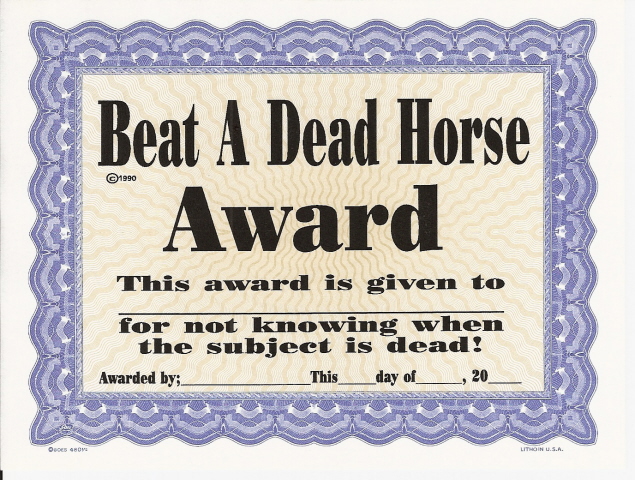Cardio or lifting first?

EvilDollee
Posts: 386 Member
I used to just do cardio and call it a day but I've started lifting after my cardio sessions lately and now it just hit me, does the order matters at all for efficient progression?
0
Replies
-
I'll do 10 minutes of cardio to warm up, then lift... and if I'm feeling crazy, I'll follow up with another 30 minutes on the arc trainer or running.0
-
I do cardio after lifting for two reasons:
1 - I sweat profusely during a good treadmill/elliptical session so I'd rather not subject others to that for an extended period of time
2 - I like the effects lifting weights has on my body and want to be able to give it 100%, if I do it after cardio, I'm tired and likely won't do as much as I do before
For results, I do not think there would be a major difference either way as long as you are able to put in as much after a cardio session as you would before.
Good for you for starting, enjoy! It's awesome!0 -
There is a slight benefit in doing lifting first (after a proper warm-up). You cannot lift as much if you have tired yourself out with cardio. Some prefer the other way around, but I do my heavy lifting first.0
-
I don't think it really matters. I do a Body Pump class for 60 minutes and then an Insanity class for 30. And, believe me, the cardio comes with the Insanity class!0
-
I don't know that order matters greatly, but I would probably do my lifting first using the same principle that they must have used to decide the order of events in a triathlon.
Do the events most likely to hurt you while you're the freshest. Depending on the kind of cardio you're doing, you can probably get away with letting your focus wane a bit without causing problems. If you're lifting heavy, don't wear yourself out before you've got a lot of weight overhead.0 -
I do cardio on different days than lifting.0
-
Lift first. You want to be as strong and least tired so you can lift heavy. This, of course, does not apply to a short cardio warm up if you need it.0
-
Generally speaking, do the one you want to focus on first. I run before I do upper body because I find it doesn't really affect my performance. But, I do not run before lower body because I want my legs to be as fresh as possible, and i don't want my form to suffer. Depending on how I feel, I might do some cardio after either of those, typically a 10 or 20 minutes video or videos.0
-
I just started lifting and backed off my running because I needed to get stronger - long distances were killing me.
So, now I do HIIT cardio for 15 minutes to warm up an then lift for 30-40 minutes 3x a week. I don't know if this is the best way to go...but it has only been 3 weeks and I am waiting another before I check results.0 -
There is a slight benefit in doing lifting first (after a proper warm-up). You cannot lift as much if you have tired yourself out with cardio. Some prefer the other way around, but I do my heavy lifting first.
This. It absolutely matters if you are lifting heavy.0 -
Lift first.0
-
I used to just do cardio and call it a day but I've started lifting after my cardio sessions lately and now it just hit me, does the order matters at all for efficient progression?
It depends. It depends a bit on your goals, and a bit on how hard/intense you are going.
You run a greater risk of injury when lifting, especially if it's at all heavy. That's why most people will suggest lifting first, when you are freshest and able to keep the best form while lifting the most weight.
However, if you have cardio specific goals, then you should probably do cardio first to get the most bang for the buck, so to speak. Just make sure you ease off the weights a bit so you can keep good form and hopefully not hurt yourself.
Obviously they ideal would be to do them on different days.0 -
I do lifting after cardio because if I don't do my cardio first I won't do it at all. I'm pretty exhausted after lifting. If I do it first I get it out of the way and don't have to think about it or dread it.0
-
I work out first thing. On days I do my running in the gym (winter), then I do cardio first. I find it helps me wake up. If I start with lifting, in the dark, at 6am, I find that I don't focus as well.0
-
Ideally cardio should be spaced out by about 6-8 hours from when you lift; but if you must do it at the same time lifting is best done first because your not tired out and you don't sacrifice form. Then followed by 15-20 minutes of high intensity cardio - otherwise a good brisk walk for 30 min is sufficient.
Saw a program/documentary with IFBB Pro Jeff Willet and that was his advice - so far it's all working for me. Losing weight while not sacrificing much lean muscle. Trust me it's hard to build a good strong lean foundation so why not work hard at keeping it?
www.jeffwillet.com
http://iwanttolooklikethatguy.com/0 -
On lifting days I do 10-15 minutes of intervals as a warm up before my lifting. Then after I lift if I still have time and energy I will do another 20 minute cardio session. On the days I don't lift then I do longer cardio sessions.0
-
Lift first.
Intensive cardio prior to lifting will deplete muscle glycogen, needed to fuel taxing anaerobic activity. It would be more beneficial to lift heavy first, in order to have maximum energy and retain muscle.0 -
Lift first.
Intensive cardio prior to lifting will deplete muscle glycogen, needed to fuel taxing anaerobic activity. It would be more beneficial to lift heavy first, in order to have maximum energy and retain muscle.
YES! Many studies show that a good 30 min brisk walk after lifting actually contributes to burning strictly fat. I wish I could remember the references for you....but you can google it and find several legit sources of clinical studies.0 -
I don't think it really matters. I do a Body Pump class for 60 minutes and then an Insanity class for 30. And, believe me, the cardio comes with the Insanity class!
No offense intended, but (as I tell my wife) Body Pump isn't really heavy lifting. It's really cardio with resistance added.0 -
Definitely lifting!!! Otherwise you won't have it in you to lift heavy!0
-
I don't do my cardio and lifting on the same day. At least not yet. When I get to my second stage then I start doing HIIT after my lifting. But...from everything I have seen and read, do what works for you. Some people will say before, some will say after. This is another one of those....
 0
0 -
i do cardio first since you need to warm up before lifting anyway. Plus i look more impressive lifting when i am all dripping in sweat:)0
-
it depends on your goals..
I would say lift first..
but if you are still trying to lose weight or get to goal weight then three days a week total body lifting regimen with cardio is probably best....
if you are trying to add some muscle then backing the cardio down would be a good choice..
either way good luck to you!0 -
Definitely lifting!!! Otherwise you won't have it in you to lift heavy!
amen sister!0 -
I don't lift so I'm only putting out an opinion that makes sense to me... I think it would depend on your goal. If gaining appreciable muscle (heavy lifting say) is your goal then I would think doing the lifting first (after warm up) would allow you to push your muscles more so you would want to lift first. If you are more interested in reducing body fat % and/or toning you'd want to do the cardio first so you can get your heart rate up. Your heart rate would stay up higher while you were lifting and therefore would add at least a little bit more to your fat burning efforts.0
-
Definitely lifting!!! Otherwise you won't have it in you to lift heavy!
I do hard cardio for 30 minutes before I lift and have yet to be too tired to lift heavy afterwards.
Cardio before works for me because I won't do it after.0 -
i used to do it before because i was affraid i wouldn't do it after.
if you really wont then i guess you have your answe
lifting depletes muscle glycogen, and supposedly this causes you to burn fat as fuel sooner... so if your looking for a reason to do one before the other that might be it.0 -
I've read this, and heard it repeated a zillion times. Does anyone know if there is any current science to support it?i used to do it before because i was affraid i wouldn't do it after.
if you really wont then i guess you have your answe
lifting depletes muscle glycogen, and supposedly this causes you to burn fat as fuel sooner... so if your looking for a reason to do one before the other that might be it.0 -
I've read this, and heard it repeated a zillion times. Does anyone know if there is any current science to support it?i used to do it before because i was affraid i wouldn't do it after.
if you really wont then i guess you have your answe
lifting depletes muscle glycogen, and supposedly this causes you to burn fat as fuel sooner... so if your looking for a reason to do one before the other that might be it.
Honestly I don't think so, just anecdotal references. I guess the main thing is that if they had figured something factual and concrete by now, everyone would be doing it. So many different ways to do things work for many DIFFERENT people.0 -
I've read this, and heard it repeated a zillion times. Does anyone know if there is any current science to support it?i used to do it before because i was affraid i wouldn't do it after.
if you really wont then i guess you have your answe
lifting depletes muscle glycogen, and supposedly this causes you to burn fat as fuel sooner... so if your looking for a reason to do one before the other that might be it.
Honestly I don't think so, just anecdotal references. I guess the main thing is that if they had figured something factual and concrete by now, everyone would be doing it. So many different ways to do things work for many DIFFERENT people.
your asking if glycogen depletion will cause you to burn more fat during cardio?
not sure if its been proven to do that or not. also not sure if anything other then the utter basics haven been 'proven' beyond the shadow of arguable doubt when it comes to fitness.
Its surprizingly difficult to find real peer reviewed research articles on the web without knowing exactly what your looking for. this at least discusses the issue but i'm not sure if it answers your question (didn't read it because its not much of an issue for me).
http://courses.ucsd.edu/rhampton/bibc102/addn_reading/fat_burners.pdf
In Brief: Endurance athletes and dieters are eager to burn more fat during exercise; athletes
hope to conserve carbohydrate stores, while dieters wish to decrease fat stores. This article
briefly reviews the role of fat as an energy source for physical activity, discusses how exercise
intensity and duration affect fat and carbohydrate metabolism, and assesses the nutrition
strategies athletes are most likely to use in attempts to promote fat burning during exercise:
caffeine ingestion, L-carnitine supplements, medium-chain triglyceride supplements, and highfat
diets. Of this group, caffeine ingestion is the only strategy scientifically proven to enhance
athletic performance.
To be honest, the last thing i read on the subject said that you can burn more calories in fat durring the work out when your muscle glycogen is depeleted, but that you will have less of an 'after burn' effect where your body is burning calories for maintenance work following tough workouts.
I'd say in the end its a wash and your better off doing it when you feel you have the most energy for whatever is more difficult for you.0
This discussion has been closed.
Categories
- All Categories
- 1.4M Health, Wellness and Goals
- 398.1K Introduce Yourself
- 44.7K Getting Started
- 261K Health and Weight Loss
- 176.4K Food and Nutrition
- 47.7K Recipes
- 233K Fitness and Exercise
- 462 Sleep, Mindfulness and Overall Wellness
- 6.5K Goal: Maintaining Weight
- 8.7K Goal: Gaining Weight and Body Building
- 153.5K Motivation and Support
- 8.4K Challenges
- 1.4K Debate Club
- 96.5K Chit-Chat
- 2.6K Fun and Games
- 4.8K MyFitnessPal Information
- 12 News and Announcements
- 21 MyFitnessPal Academy
- 1.5K Feature Suggestions and Ideas
- 3.2K MyFitnessPal Tech Support Questions





















